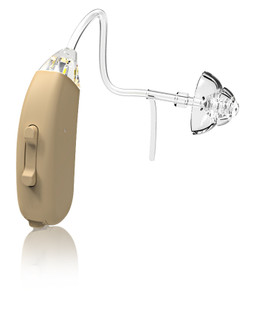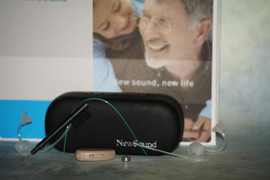How to Properly Care for and Maintain Your Hearing Aids
Posted by DR Paul on Jun 03, 2024
Hearing aids are valuable devices that can significantly improve your quality of life. But like any other piece of technology, they require regular care and maintenance to function optimally. Whether you're new to using hearing aids or have been wearing them for years, understanding how to take care of these devices can make a huge difference.
In this comprehensive guide, we'll walk you through everything you need to know about caring for and maintaining your hearing aids.
Understanding Your Hearing Aids
Before diving into maintenance tips, it's essential to understand the different types of hearing aids and their components. Generally, hearing aids fall into two main categories:
1.Behind-the-Ear (BTE) - These devices rest behind the ear and are connected to a custom earpiece inside the ear canal.
2.In-the-Ear (ITE) - These devices fit entirely inside the outer ear.
Knowing which type you own will help you follow the appropriate care instructions.
Hearing Aid Daily Maintenance Tips
1. Clean Your Hearing Aids Regularly
Remove earwax and debris daily. Use a soft, dry cloth to wipe the device and a small brush to clean hard-to-reach areas.
Avoid using water, cleaning fluids, or alcohol, as they can damage the electronics.
2. Check Batteries
Replace the batteries as needed. Most hearing aids use small batteries that need to be changed every few days to a week.
Keep a stock of spare batteries and store them in a cool, dry place.
3. Inspect for Damage
Check your hearing aids for any signs of wear and tear. Look for cracks, loose parts, or moisture.
If you notice any issues, contact your audiologist immediately for repairs.
Hearing Aid Weekly Maintenance Tips
1. Deep Cleaning
Perform a more thorough cleaning once a week. Use specialized cleaning kits available from your audiologist.
Clean the tubing and ensure there is no blockage that could affect sound quality.
2. Drying
Use a dehumidifier designed for hearing aids to remove any moisture that may have accumulated. This is especially important if you live in a humid climate or sweat a lot.
Hearing Aid Monthly Maintenance Tips
1. Professional Check-Up
Schedule a monthly check-up with your audiologist to ensure that your hearing aids are functioning correctly.
They can perform advanced cleaning and make any necessary adjustments.
2. Update Software
Some modern hearing aids come with software that can be updated. Make sure you have the latest version to benefit from improved features and performance.
Hearing Aid Seasonal Maintenance Tips
1. Adapt to Weather Changes
In summer, be cautious of sweat and humidity. Use moisture-absorbing accessories.
In winter, avoid exposing hearing aids to extreme cold, which can affect battery life.
2. Traveling
When traveling, keep your hearing aids and accessories in a carry case.
Always carry extra batteries and a cleaning kit.
Hearing Aid Troubleshooting Common Issues
1. No Sound or Reduced Sound
Check if the device is turned on and the volume is set correctly.
Ensure the battery is not dead or improperly placed.
Clean the device to remove any blockages.
2. Whistling or Feedback
Reposition the hearing aid in your ear.
Ensure the earpiece fits correctly and is not damaged.
3. Distorted or Unclear Sound
Replace the batteries.
Clean the device thoroughly.
Consult your audiologist if the problem persists.
Conclusion
Proper care and maintenance of your hearing aids are crucial for their longevity and performance. By following these tips, you can ensure that your hearing aids will continue to provide you with the best possible hearing experience.
If you have any questions or need further assistance, don't hesitate to contact your audiologist. Remember, a little effort in maintenance can go a long way in preserving the functionality of your hearing aids.
For more personalized advice, feel free to book an appointment with one of our specialists. Happy Hearing!










